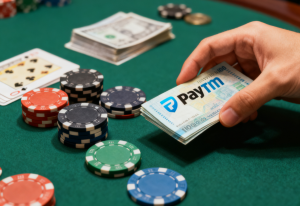The intersection of online gaming and cryptocurrency has sparked a revolution, redefining how players interact with virtual worlds, own digital assets, and even generate income. As blockchain technology matures and cryptocurrencies gain mainstream acceptance, “online gaming with cryptocurrency” has evolved from a niche trend to a multi-billion-dollar industry. This article explores its growth drivers, unique advantages, challenges, and what lies ahead—with insights on how platforms like CROWN11 are shaping this future.
How Cryptocurrency Transforms Online Gaming: Core Mechanics and Use Cases
At its core, online gaming with cryptocurrency leverages blockchain technology to enable decentralized, transparent, and player-centric experiences. Unlike traditional games where developers control in-game economies, crypto games (or “play-to-earn” (P2E) games) empower players to own, trade, and monetize their digital assets. Here’s how it works:
1. Blockchain-Backed Assets: Ownership Beyond the Screen
In traditional online games, items like skins, weapons, or characters are stored on centralized servers. If the game shuts down, players lose these assets. Crypto gaming changes this by tokenizing in-game items as non-fungible tokens (NFTs) or fungible cryptocurrencies (e.g., Ethereum, Solana). For example, a rare sword in a crypto game could be an NFT—verifiable on the blockchain—allowing players to sell it on marketplaces like OpenSea for real-world value.
2. Play-to-Earn (P2E) Economies: Rewards with Real-World Utility
Crypto games integrate reward systems where players earn cryptocurrency (e.g., AXS,SLP) or NFTs for completing quests, winning battles, or contributing to the game’s ecosystem. This shifts the focus from “grinding for fun” to “grinding for value.” Take Axie Infinity, a pioneering P2E game: at its peak, players in developing economies earned enough through gameplay to cover living expenses, blending entertainment with financial opportunity.
3. Decentralized Autonomous Organizations (DAOs): Player-Driven Governance
Many crypto games operate on DAOs, where players vote on updates, treasury allocations, and game rules using in-game tokens. This fosters community ownership—unlike traditional games, where decisions are top-down. For instance, Star Atlas, a space exploration crypto game, lets players shape its universe through voting, increasing engagement and loyalty.
Why Crypto Gaming Outpaces Traditional Online Games: 5 Key Advantages
To understand the surge in popularity, let’s compare crypto gaming with traditional models using a simple table:
| Feature | Traditional Online Gaming | Online Gaming with Cryptocurrency |
|---|---|---|
| Asset Ownership | Players rent assets; no resale rights. | Players own NFTs/crypto—sell/trade freely. |
| Economic Control | Developers set rewards; inflation risks. | Players earn real crypto; supply/demand dynamics. |
| Transparency | Opaque loot boxes; hidden odds. | Blockchain records ensure fairness. |
| Global Accessibility | Regional payment restrictions. | Crypto enables borderless transactions. |
| Community Power | Developers dictate updates. | DAOs let players influence the game’s future. |
1. True Digital Ownership
Crypto gaming’s use of NFTs and blockchain eliminates the “walled garden” model. Players aren’t just renters—their assets have real-world liquidity. A 2023 survey by DappRadar found that 68% of crypto gamers cite asset ownership as their top reason for choosing these games over traditional options.
2. Financial Inclusion
In regions with unstable currencies or limited job opportunities, crypto gaming offers a path to income. For example, Filipino players flocked to Axie Infinityduring the pandemic, earning up to $1,000/month—more than the local minimum wage. This “gaming as work” model has attracted over 1.5 million daily active users in emerging markets.
3. Enhanced Security and Transparency
Blockchain’s immutable ledger prevents fraud. Cheating or unauthorized asset duplication is nearly impossible, as every transaction is recorded and verifiable. Platforms like CROWN11 leverage this to build trust, ensuring players’ crypto rewards and NFTs remain secure.
4. Dynamic Economies
Crypto game economies mirror real-world markets. Token prices fluctuate based on supply, demand, and game events (e.g., a new update might boost a token’s value). This creates engaging, ever-evolving experiences—players aren’t just playing; they’re investing in an ecosystem.
5. Community-Led Innovation
DAOs turn players into stakeholders. When Illuviumallowed its community to vote on new character designs, participation hit 40%—far higher than traditional game feedback surveys. This collaboration drives long-term retention and satisfaction.

Challenges in Crypto Gaming: Hurdles to Overcome
Despite its potential, the space faces growing pains:
1. Scalability and User Experience (UX)
Blockchain transactions can be slow and costly. Early crypto games like Etheriastruggled with laggy gameplay due to network congestion. However, newer blockchains (e.g., Polygon, Solana) offer faster, cheaper transactions, improving UX.
2. Regulatory Uncertainty
Governments worldwide are grappling with crypto regulations. In India, while gaming is legal, cryptocurrency trading faces ambiguity. Platforms like CROWN11 address this by prioritizing compliance and educating users on safe practices.
3. Volatile Token Values
P2E games relying on unstable tokens risk alienating players if rewards plummet. To mitigate this, some games (e.g., DeFi Kingdoms) use stablecoins or hybrid reward systems, balancing risk and reward.
The Future of Online Gaming with Cryptocurrency: Trends to Watch
As technology evolves, crypto gaming will likely focus on:
1. Interoperability: The Metaverse Connection
Games like Decentralandand The Sandboxalready allow players to use assets across multiple games. Future crypto games will integrate with the metaverse, letting players take their NFTs from a fantasy RPG to a virtual concert venue.
2. AI-Enhanced Gameplay
Artificial intelligence will create dynamic NPCs, personalized storylines, and adaptive difficulty—making crypto games more immersive. Imagine an NFT character that learns from your playstyle and evolves over time.
3. Institutional Adoption
Big names like Nike (with NFT sneakers) and Disney (with Star WarsNFTs) are entering the space. This mainstream investment will legitimize crypto gaming and attract casual players.
Conclusion: Why CROWN11 is Your Partner in Crypto Gaming Innovation
Online gaming with cryptocurrency isn’t just a trend—it’s the future of digital entertainment, blending fun, finance, and community. As the industry grows, platforms that prioritize security, user experience, and compliance will lead the way.
CROWN11 is at the forefront of this revolution, offering a secure, engaging crypto gaming ecosystem where players own their assets, earn real rewards, and shape the game’s future. With cutting-edge blockchain integration and a focus on player empowerment, CROWN11 is redefining what it means to play online.
Learn more about CROWN11’s innovative approach and start your crypto gaming journey today—visit https://www.crown11app.com.
FAQs About Online Gaming with Cryptocurrency
Q1: Is online gaming with cryptocurrency legal?
A: Legality depends on your region. In many countries, owning and trading crypto assets (including in games) is legal, but always check local regulations.
Q2: Can I lose money playing crypto games?
A: Yes—token values can drop, and some games require upfront NFT purchases. Always research before investing.
Q3: How do I secure my crypto gaming assets?
A: Use a secure wallet (e.g., MetaMask), enable two-factor authentication, and avoid sharing private keys. Platforms like CROWN11 also offer additional security layers.
Q4: What’s the difference between P2E and play-and-own games?
A: P2E focuses on earning cryptocurrency; play-and-own emphasizes NFT ownership. Many modern games combine both.
Q5: Are crypto games only for tech experts?
A: Not anymore—user-friendly platforms like CROWN11 simplify onboarding, making crypto gaming accessible to all.











